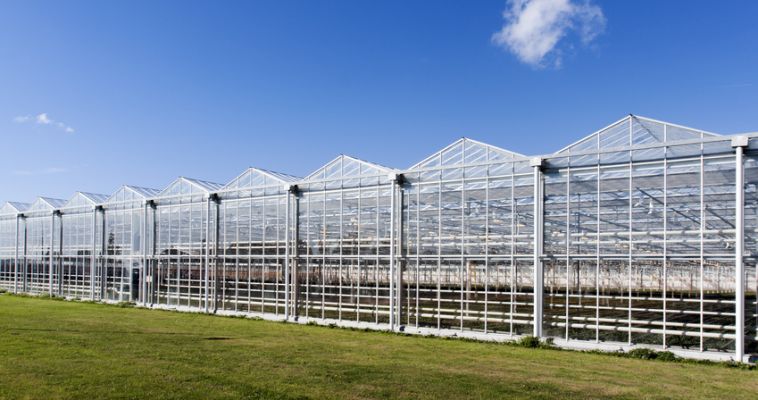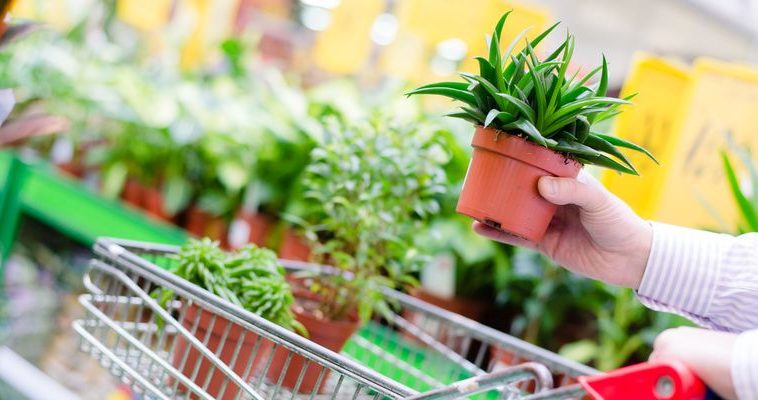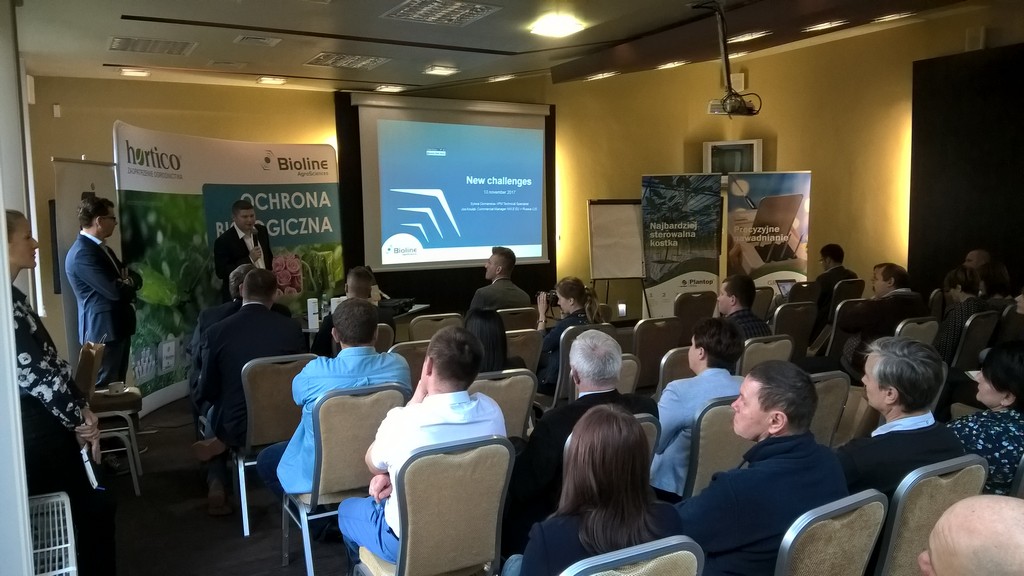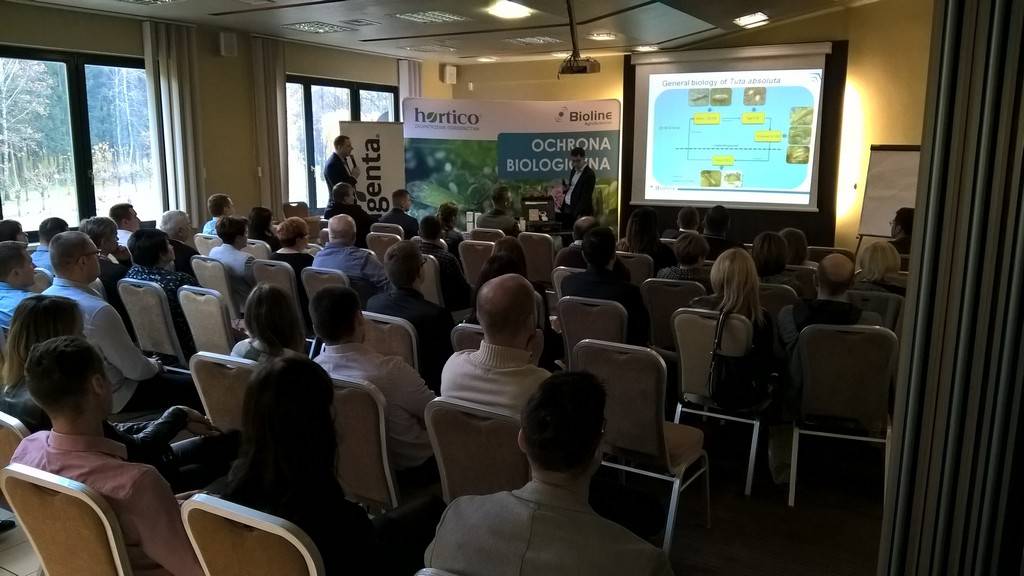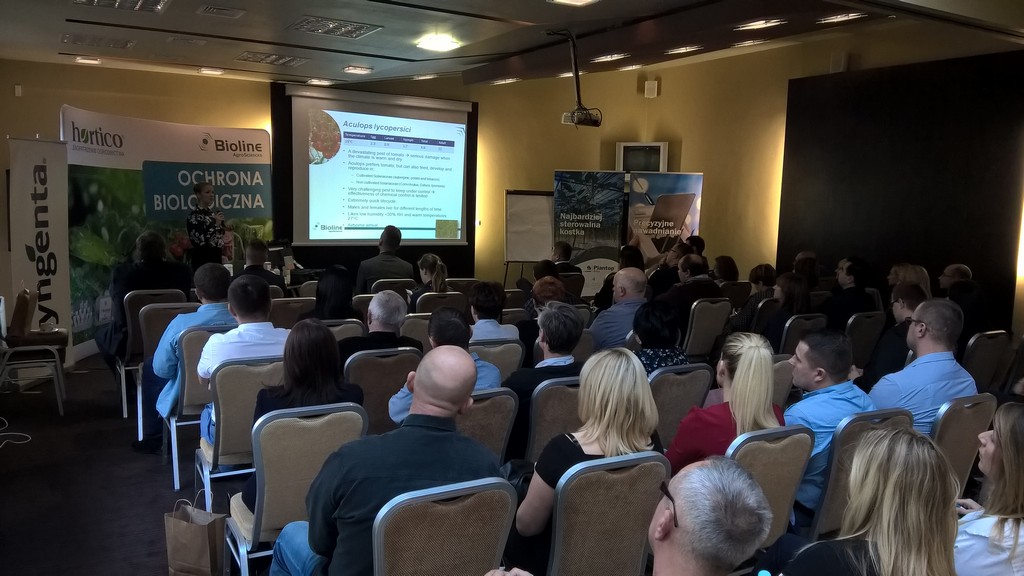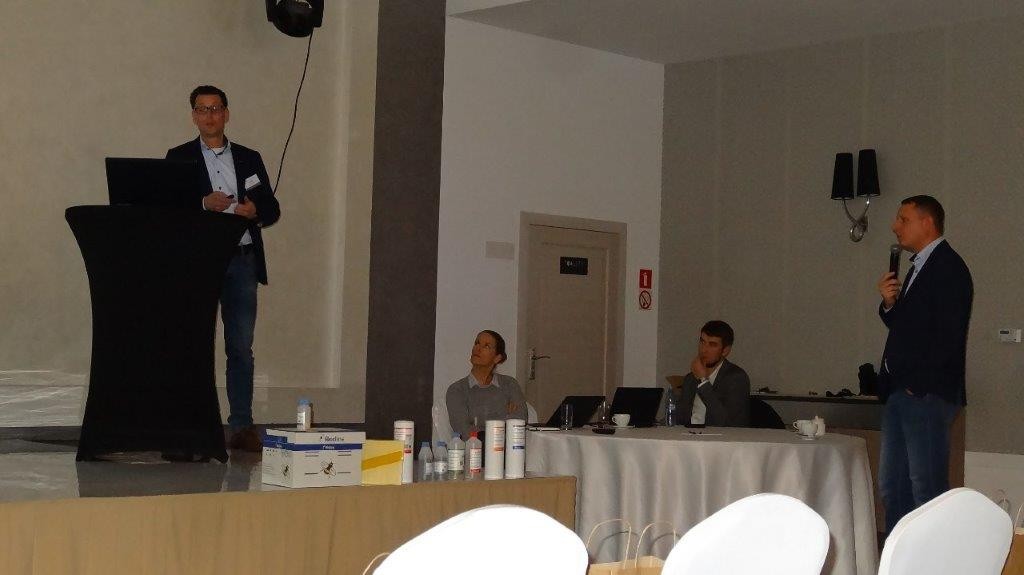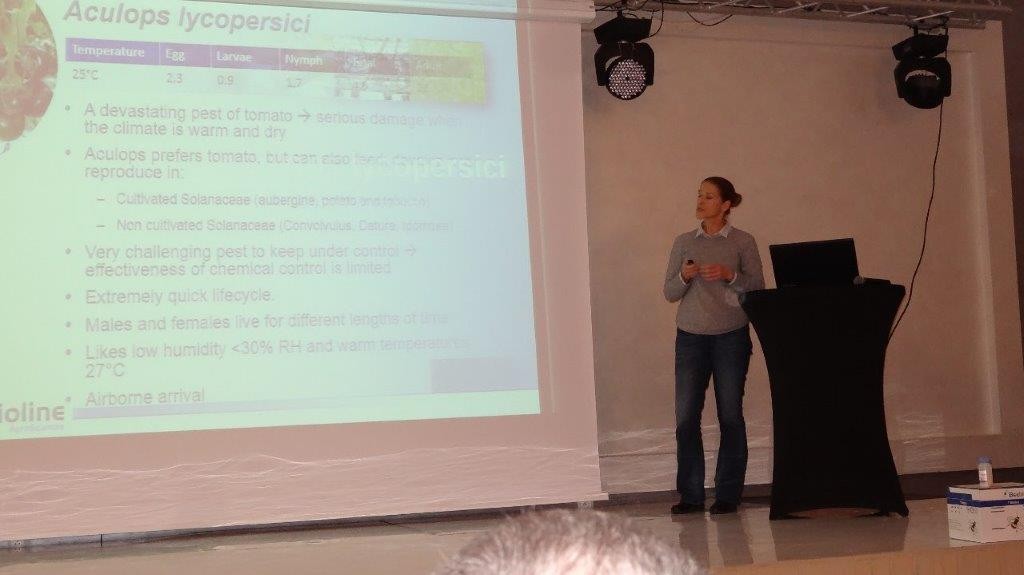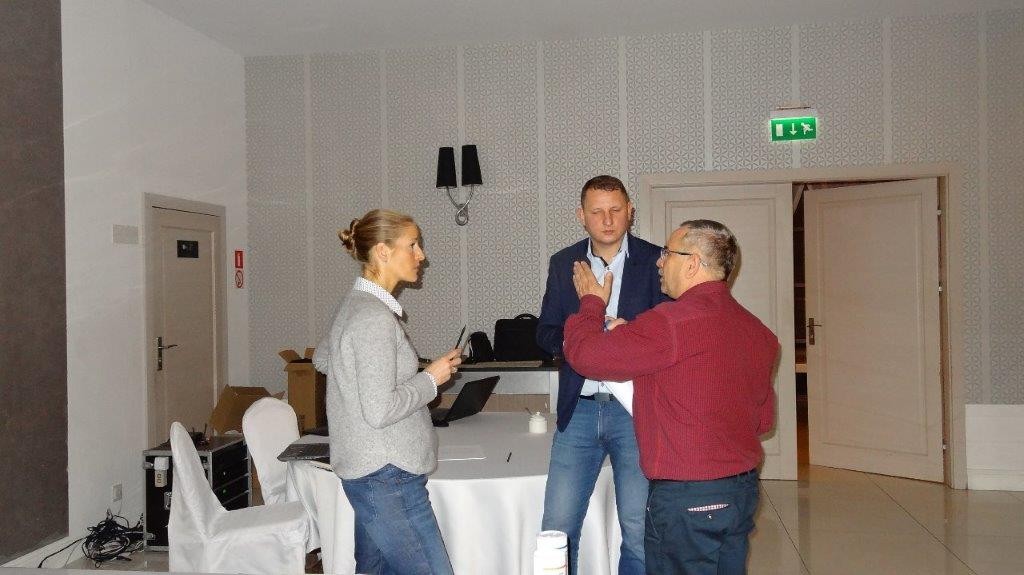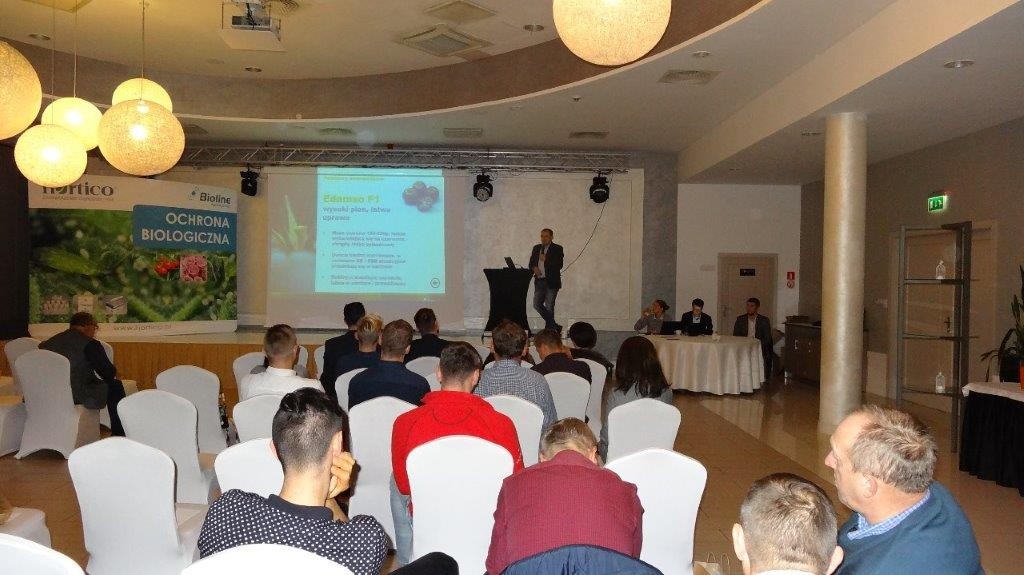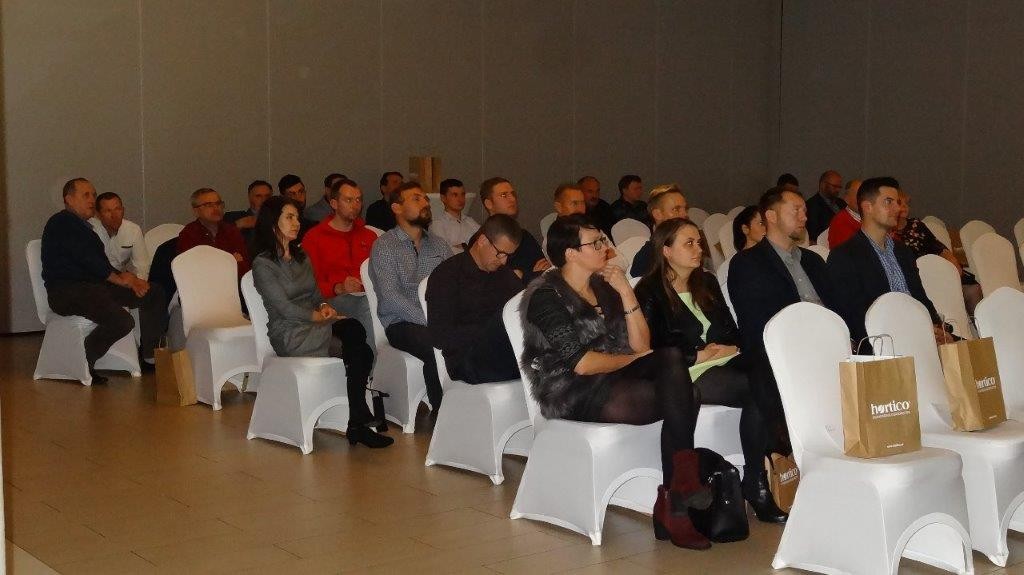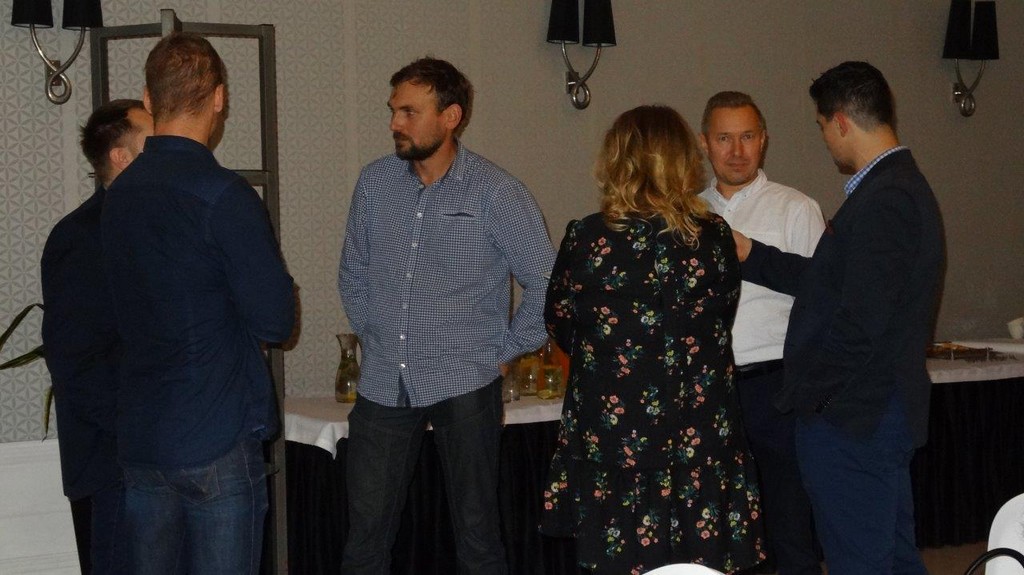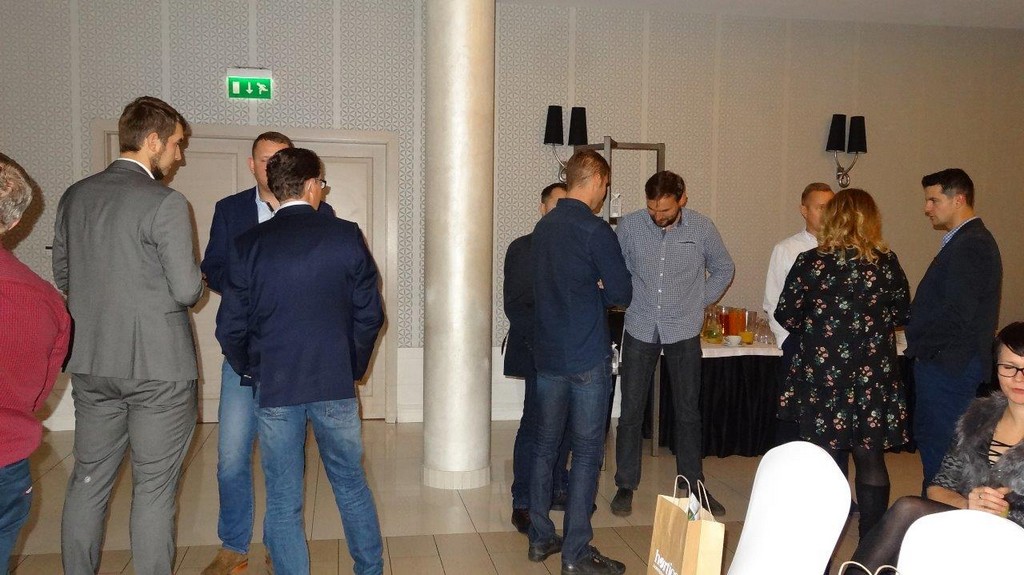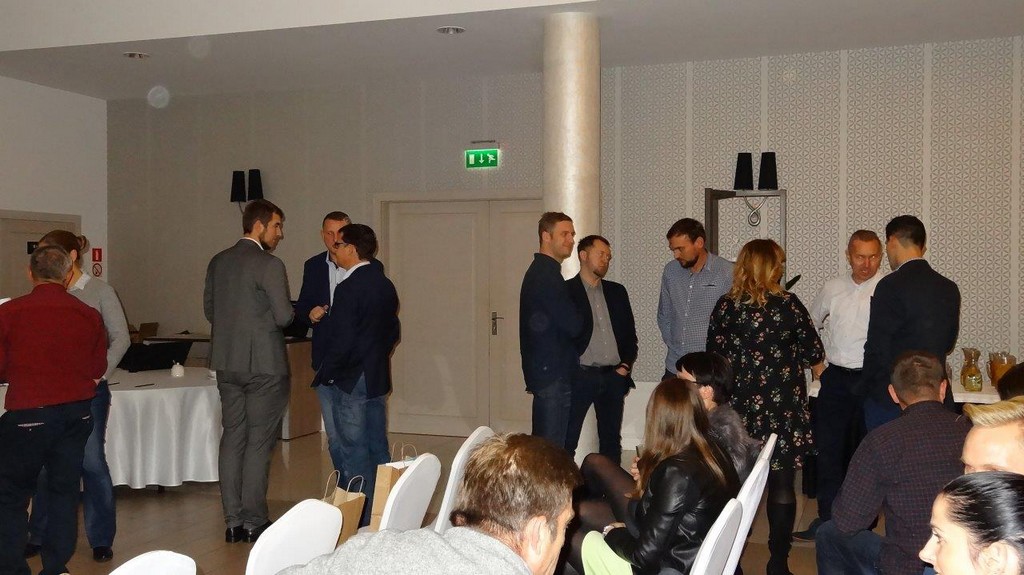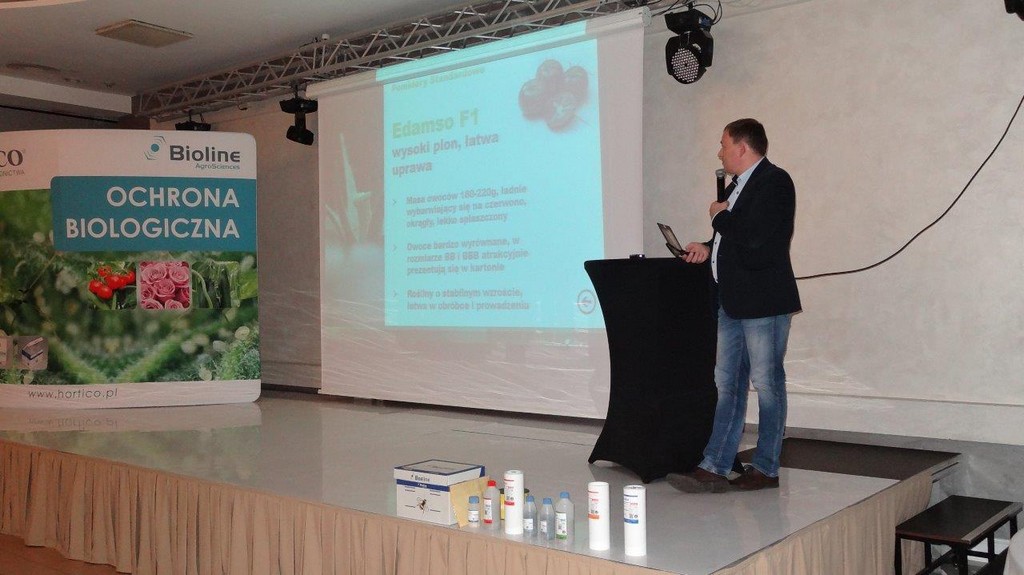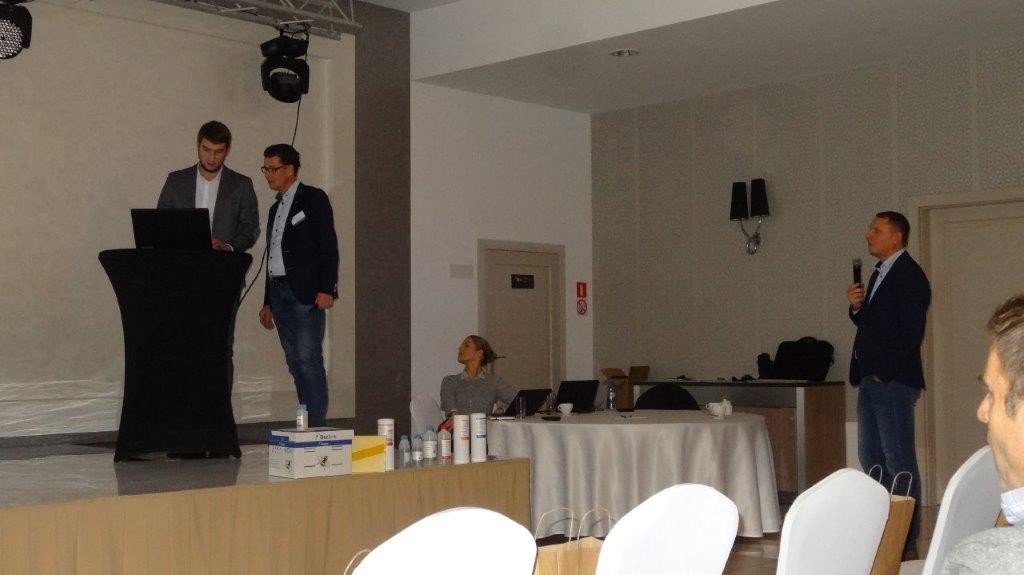“Biological protection is the future” – under this slogan, HORTICO, the Bioline AgroSciences company, representing the producer of biological protection products in Poland, organized a series of training courses for producers of vegetables and ornamental plants grown under cover. Vegetable growers met on November 13 in Łaszków and three days later in Poniatowa near Lublin. Syngenta and Grodan were the co-organizers of these events. Producers of ornamental plants had their meeting on November 15 in Warsaw.
Producers of cut flowers and other ornamental plants were invited to the training in Warsaw. Specialists representing the companies organizing the meeting presented information on comprehensive biological protection in the cultivation of roses, chrysanthemums and poinsettias. Representing Bioline AgroScience, Jos Knulst (commercial director) discussed the principles of Integrated Pest Management (IPM). As he emphasized, biological protection is only one of its elements. Equally important components of integrated protection are: the gardener’s knowledge and experience, technical and technological facilities at his disposal, the use of appropriate (healthy) seeds, seedlings and seedlings of cultivated plants, as well as chemicals that should be used as intended, but to a limited extent, only the necessary amount. Monitoring is the basis of biological protection. The advisor presented the tools used in the inspection of crops to monitor the presence and mass trapping of specific species of pests. He also talked about the types and forms of preparations for biological protection, emphasizing the principles of proper application of agents containing living beneficial organisms. The specialist encouraged gardeners to use the Bioline App (currently only available in English). It contains comprehensive information on plant biological protection, allowing for easy and quick identification of pests and their natural enemies, through data on products to be protected, to protection programs and detailed recommendations for the use of preparations. The application also allows you to relatively quickly and easily check the effect of numerous chemical plant protection products on biological plant protection products. With this information, gardeners can select both product groups to achieve the best results in pest and disease control. All this information can be accessed via a mobile phone.
Paweł Kulas from the HORTICO company characterized useful entomophages used in the protection of ornamental plants against thrips, spider mites and greenhouse whitefly. He discussed the specificity of these pests, the conditions conducive to their development and those hindering their control, as well as presented products for monitoring and the introduction of beneficial organisms in cultivation facilities.
Sylwia Domańska from the British Bioline company presented comprehensive biological protection programs against major pests in the cultivation of roses, chrysanthemums and poinsettias, prepared by Caroline Van Den Hoek, a specialist from this company. These programs contain detailed dates and doses of individual preparations, which determines the effectiveness of biological protection. After the training, there is time for individual talks and consultations with advisers.
During vegetable meetings, gardeners had the opportunity to learn about the offer of agents for biological protection of greenhouse vegetables.
Paweł Kulas presented basic information on the biology of the most common pests in tomato and cucumber crops, as well as biological preparations recommended for combating these pests. Bioline AgroSciences offers a very wide range of products against the greenhouse whitefly, such as: Macro line, Encarline, Eretline as well as Swirskiline and Montyline. Paweł Kulas reminded that in the case of the commonly used whitefly (Macrolophus pygmaeus), it is important to introduce and feed this useful insect (Bugfood food) early enough for the first 8-10 weeks, which accelerates its development. For the control of the spider mite Chmielowiec, the specialist recommended the products Phytoline, Anderline, Mcroline and Clifornialine, he also provided detailed recommendations for their use.
Interesting information on the possibility of combating tomato moth (Tuta absoluta), which poses a serious threat to crops due to its very short development cycle, was presented by Jos Knulst. This pest can be fought with chemical treatments, but in the case of “chemistry” there is a risk of its immunization, and there are fewer and fewer approved agents available. It is also possible to use preparations containing the bacterium Bacillus thuringiensis, and other, already known methods, include the installation of pheromone traps in cultivation or the introduction of mealworm (Macrolophus pygmaeus). Tricholine is a new proposition for combating moth – the product contains the buckthorn Trichogramma achaea (Hymenoptera), which parasitizes the eggs of the pest, prevents it from feeding on plants. One useful wasp hymen is active in an area of about 100 m2. It is active at a temperature in the range of 15-32 ° C, with an optimum of 23-25 ° C, i.e. at the level in which tomatoes are grown. Due to the fast pace of development of the buckthorn, it is recommended to use it together with the whitefly nib which builds the population more slowly, thanks to which entomophages complement each other well in combating tomato moth.
Sylwia Domańska spoke about the fight against the tomato rust mite (Aculops lycopersici), a pest that more and more often attacks tomato plantations also in Poland. This pest feeds on nightshade plants (e.g. tomato, pepper). It is favored by warm and dry weather (around 27 ° C and less than 30% relative humidity). The possibilities of chemical control are limited, and the agents that could act are harmful to beneficial organisms used in biological protection. Among the beneficial organisms, the predatory mites Amblyseius Andersonie and A. californicus (Anderline – sachets and bottles) give the best effects in the fight against the rust mite.
Anna Wize, Anna Maciejuk, Pod Osłonami No. 8/2017



